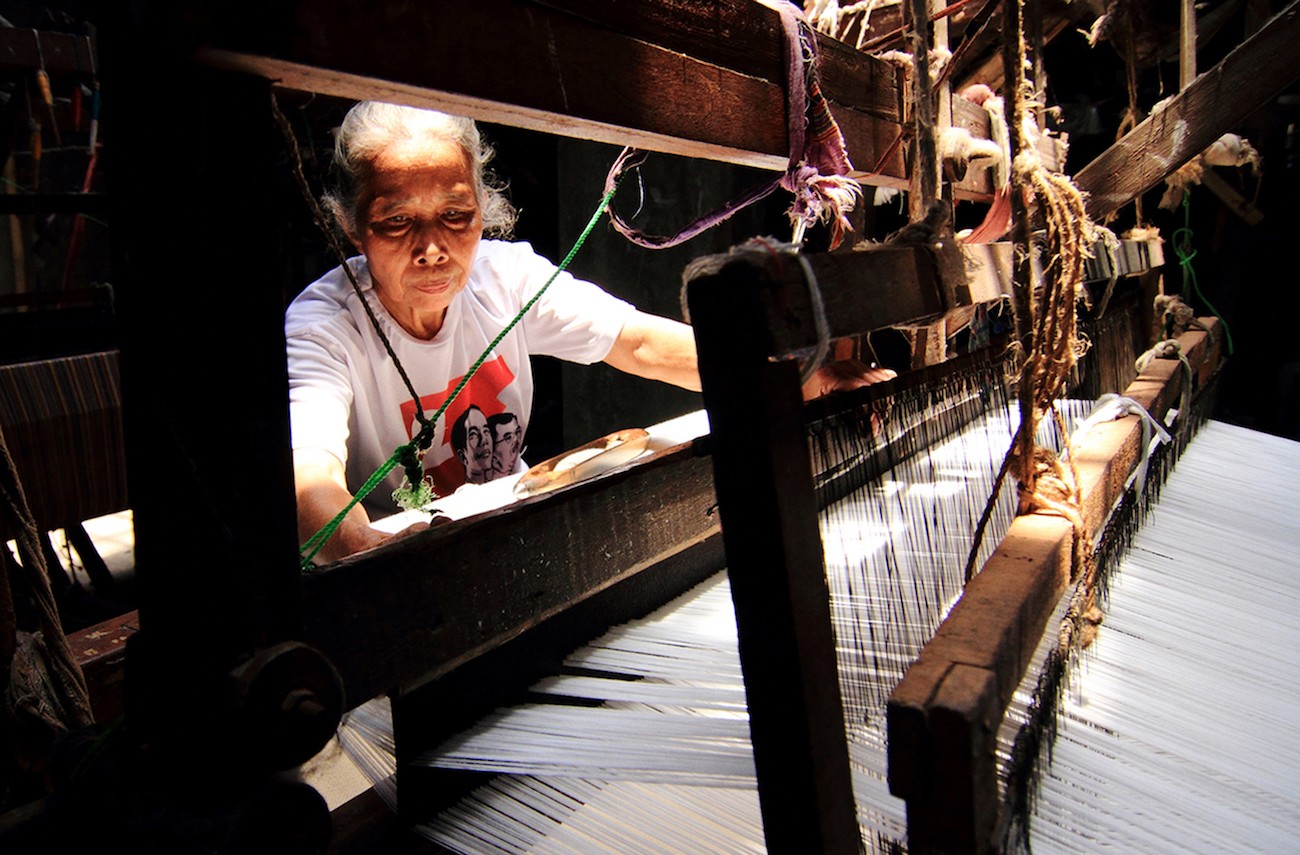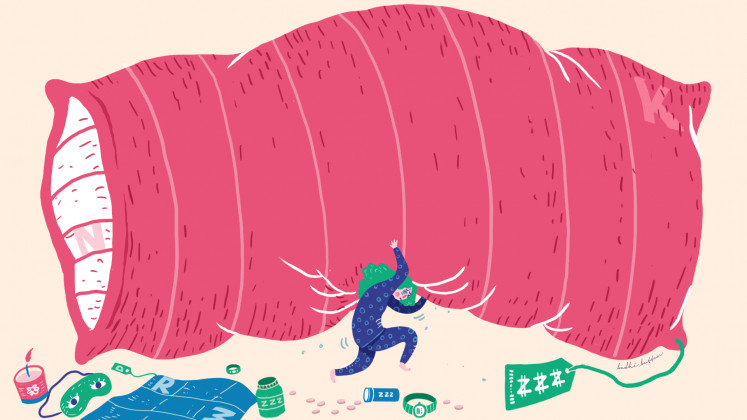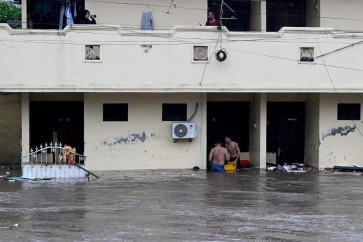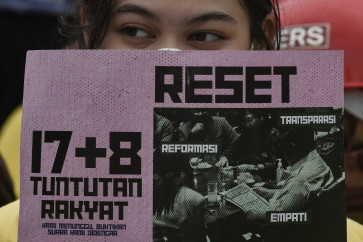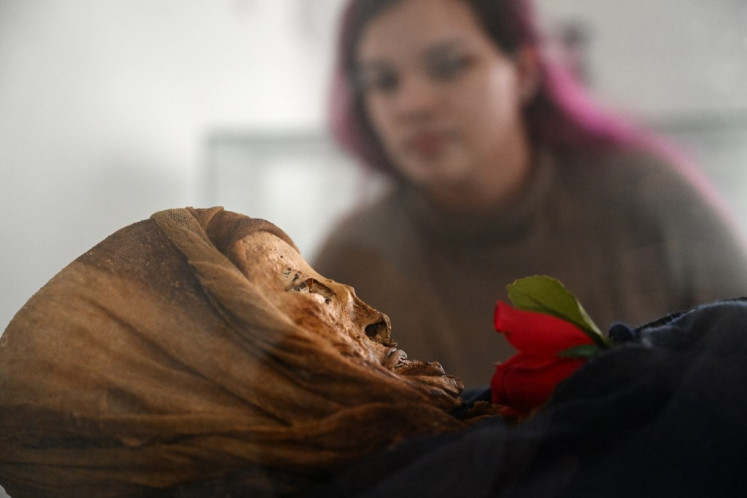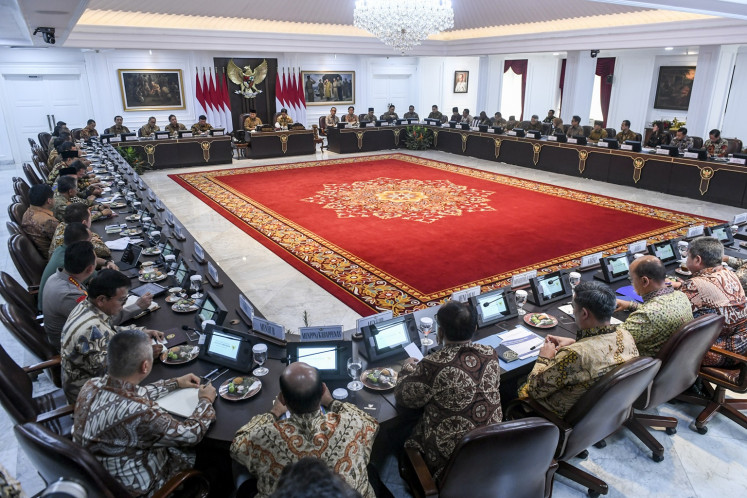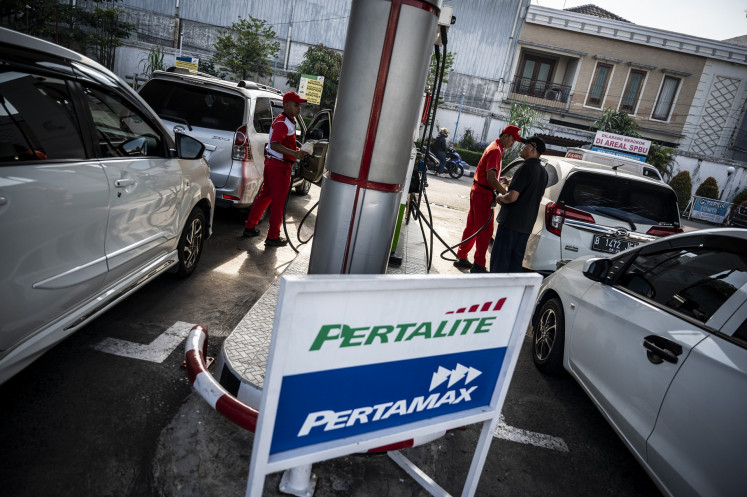Popular Reads
Top Results
Can't find what you're looking for?
View all search resultsPopular Reads
Top Results
Can't find what you're looking for?
View all search resultsBringing back the glory days of 'lurik'
Rachmad said the Pedan lurik industry merely exists to help the workers survive.
Change text size
Gift Premium Articles
to Anyone
B
etween 1950 and 1970, Pedan district in Klaten, Central Java, was the only production center of woven lurik (traditional striped fabric) in Indonesia. With 500 home industries that housed about 10,000 workers, the industry grew with the help of the traditional manual loom.
Suhardi Hadi Sumarto pioneered the lurik home industry in 1938 after completing his education at the Textiel Inrichting Bandoeng (Bandung Textile Institute) in West Java.
Rachmad, a lurik businessman in Pedan who survived the rise and fall of the industry, says that Suhardi did more than just produce lurik.
“He also taught his neighbors the process of making [lurik]. My father, Atmo Prawiro, was one of his students,” he explains.
Today, Rachmad is one of the few lurik businessmen in Pedan who still owns about 50 oklak (manual looms), although only 15 are regularly used. One oklak can produce about 10 meters of woven lurik in one go, or about 250 to 300 meters woven lurik per month.
Read also: Designer Edward Hutabarat preserves ‘lurik’ in his latest exhibition
“The golden age of manually woven lurik has passed, but I hold on [to it] because it is my choice to preserve the art. For me, this is not about the money,” Rachmad says.
Only three manually woven lurik home industries have survived the changing decades. One belongs to Rachmad, consisting of 30 workers. Another belongs to Ibu Sudiro, with fewer workers, and the third belongs to Arif Purnawan, who is Rachmad’s eldest son.
Rachmad said the Pedan lurik industry merely exists to help the workers survive. However, he doesn’t dismiss the influences of modernity and thinks the industry must adapt to the times.
“If we hold on to conventional motifs in this traditional production [method], we won’t sell. This is why we need to experiment often,” he says.
One of Rachmad’s weavers, Saryati, 67, can weave about seven meters of lurik per day at a fee of Rp 5,000 (3 US cents) per meter, which she can collect daily or weekly. She has been working for Rachmad since she was a young girl.
Read also: The making of colorful 'lurik'
The remains of the lurik glory days are still neatly kept in Rachmad’s house/workshop at Tlingsing village, Pedan. His son Arif showed The Jakarta Post order forms for lurik dated between 1950 and 1970 from several countries, such as the United States, Australia, Singapore, Malaysia and the Netherlands.
Rachmad’s business survived due to his openness to explore new materials, which resulted in new innovations in his products. With the help of his children, Rachmad now creates woven lurik using cotton and silk yarns combined with natural fibers.
Arif combined the classical black and white udan liris motif with turquoise or maroon. He was also brave enough to include batik ornaments to classical motifs such as klenting kuning, sodo sakler, lasem, tuluh watu, lompong keli, kinanti or kembang tela.
“In the past five years, my father and I have been giving free weaving workshops, manual looms and capital loans to those who are serious about doing this business. It’s not much, but this is our effort to preserve lurik and encourage the emergence of new lurik artisans,” Arif says.
The father-son effort seems to be successful as new lurik businessmen have emerged in Cawas, Klaten and Weru districts, Sukoharjo regency. Though they’re success is still a far cry from that of Pedan’s glory days, the new businesses have been able to sell their products to various cities. (asw)

